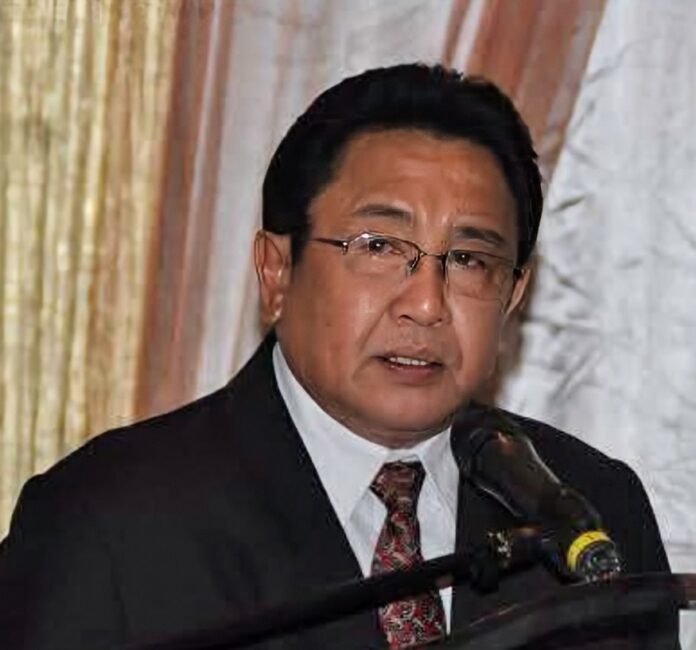Kalakau Untol…Abolishing educational debts should be championed by all parties, whether they are in government or opposition.
KOTA KINABALU : – Parti Solidariti Tanah Airku (STAR) leader Datuk Kalakau Untol has voiced strong support for Warisan president Datuk Seri Mohd Shafie Apdal’s recent pledge to abolish and resolve education loans for Sabahans who previously obtained funding through the National Higher Education Fund Corporation (PTPTN) and Yayasan Sabah.
Kalakau said Shafie’s proposal was timely and deserved backing, particularly given the harsh economic realities faced by many graduates in the state.
“In view of the economic challenges, Shafie’s promise deserves to be supported. Many Sabahan students are burdened by these debts, and many also find it difficult to secure jobs after graduation,” he said in a statement.
He urged all parties, both in government and the opposition, not to politicise the issue, stressing that reducing financial burdens for the rakyat should be a collective priority.
“This is not about politics. It’s about our duty to help the people,” he said. “Abolishing educational debts should be championed by all parties, whether they are in government or opposition.”
Kalakau, who was former Tuaran MP and federal deputy minister, also expressed concern about the challenges faced by young people starting their lives while carrying the weight of student loan repayments.
“Our younger generation should be focusing on starting their lives. It’s sad to see them carrying heavy debts,” he said.
“The cost of living is already a challenge for everyone, especially the youth.”
Kalakau’s remarks come as Sabah continues to grapple with the highest unemployment rate in the country. As of late 2024, the state’s unemployment rate remains at 7.7%, significantly above the national average of 3.2%, with over 165,000 Sabahans actively seeking employment.
Data compiled over the past few years shows a worrying trend. Sabah’s unemployment rose from 114,300 individuals in 2019 to 165,600 in 2023, marking one of the slowest recoveries from the economic fallout of the COVID-19 pandemic.
Many graduates in Sabah have voiced frustrations over their limited job prospects and low starting wages, with some struggling to earn more than RM1,800 per month despite holding degrees.
“Getting a job in Sabah is already tough. Many of us are still unemployed or underemployed years after finishing our studies,” said one graduate, who requested anonymity.
Kalakau said these conditions made the issue of student debt even more urgent, as many young people were already grappling with financial pressures even before entering the workforce.
“The government must act to ease the burdens of our youth. It is not just about wiping out debt, it’s about giving them a fair start in life.”
Shafie, during a recent speech, pledged that if Warisan returns to power, the party would seek to abolish all educational debts for Sabahans under PTPTN and Yayasan Sabah.
While the proposal has received praise from students and youth leaders, it has also drawn criticism from certain quarters who question its financial viability.
However, Kalakau dismissed such criticism and maintained that education debt relief should be treated as a long-term investment in the future of Sabah’s youth and economy.
“This should not be viewed as a populist move. It’s a much-needed policy that will have a positive ripple effect across society,” he said.
He added that with the rising cost of living, stagnant wages, and limited job creation, the younger generation in Sabah was increasingly being left behind.
“This is about giving our young people breathing space. With everything from food to housing becoming more expensive, carrying student debt only adds to their burden.”
Kalakau urged all political parties to put aside partisanship and work together to find lasting solutions to youth debt and unemployment.
“Whether in government or the opposition, we must come together to support this initiative. Our responsibility is to the people, not our political positions,” he said.
He concluded by saying that investing in young people’s futures is essential for the long-term prosperity of Sabah.

